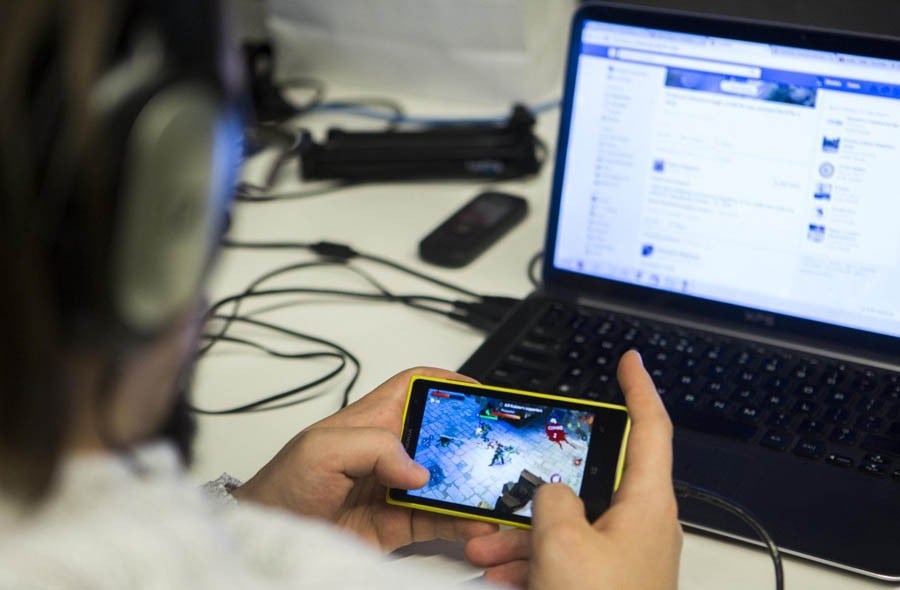

Social media, the latest communication facility to hit our society, is not only a rage with the younger generation, it has already become the hottest channel for exchange of information and ideas on an extraordinarily large scale. For many, it is like a pretty messenger available for 24-hour service for conveying messages of goodwill. For some others, it is like an enfant terrible that can be used, at all times, not only to destroy opponents and evil doers and expose the corrupt and the vulgar ones, but also to hurt and defame good citizens.
Both sides have much evidence to support their opinions but the balance seems to be in favour of recognising the social media for the good it can accomplish.
Nobody will deny the social media’s capacity to promote friendships. All kinds of users of internet, from owners of high-grade computers to those who can only afford a cheap mobile phone, are able to talk to their friends not only within their city and country but across the globe.
The net is the quickest means of sharing joys and sorrows, triumphs and heartbreaks, the cheapest way to exchange greetings on festivals and birthdays. A very large number of people can tell each other of the festivals/ceremonies/receptions they have attended, the journeys they have undertaken, or the meals they have cooked or consumed -- even improvements in their appearance they have succeeded in achieving.
One can see in these exchanges a revival of the art of conversation that had almost died after the invention of passive, non-participatory forms of entertainment - chiefly television. This conversation can be frivolous gossip and it can also develop into extensive debates on what is happening in the country and how the ordinary citizens can influence the course of events.
This medium is also the quickest carrier of news and views expressed on any development by various parties. Its potential for mobilising people for attending a public rally, reporting an outrage, recording an accident or preparing a visual record of good or foul deeds done by an official or a non-state actor has already been exploited by many parties.
The social media has also given voice to countless men and women who never had opportunities for expressing themselves. We see housewives, many of them rich and many others who are not rich at all, telling their friends and the world at large about their children having scored good marks in their exams, about the happy marriages of their girls and boys, and about their refined taste for good clothes or their ability to buy the latest editions of costumes marketed by famous designers.
The serious users of the social media are doing well by spreading knowledge. They talk about the good books or articles in newspapers they have read and want others to follow their example. You will find erudite commentators offering you a summary of observations made by politicians in their speeches and by journalists in their columns on issues of vital concern to the state and the society.
But like any other facility, social media is not an unmixed blessing. Quite a few of its negative points have been noted.
One of the bad side effects is that the social media becomes an addiction. Children allowed access to it tend to ignore their studies and are diverted from their other responsibilities and possibilities of self-education and older people, too, tend to become prisoners of the little weapon in their hands. The android mobile is a deadlier enemy of intra-family conversation and dialogue than radio and television.
The social media is a new field and the enormous freedom its users have can lead to dissemination of mischief on an unprecedented scale. There is no dearth of people who pass judgment on governance, social behaviour, relations with foreign states, matters of war and peace and arts and literature, without knowing what they are talking about. Large audiences can thus be influenced by half-baked ideas that could push the society backward and not forward.
This danger can be averted by accepting the fact that social media needs time to find its feet. It is operating in an environment that is hardly conducive to its progress towards maturity in terms of content and form both. The print media is in transition; a good part of it is still under-developed and another part has been co-opted by the powers that be. The electronic media has inherited the weaknesses of the print media and has become a battle ground for power/pressure groups.
Further, the government seems to have decided not to allow the social media to progress towards its refinement and is bent upon disrupting this process through a policy of censorship and punitive measures. The government will gain little from this and the media will lose its most precious asset -- freedom.
A sane approach to the social media: within the context of a rational media regime is possible. Let us bear with the simple aspirations of the users of the social media -- self-projection, light hearted chatter, even a display of temper and malice -- and let the media delineate its path towards socially responsible expression in a climate of freedom.